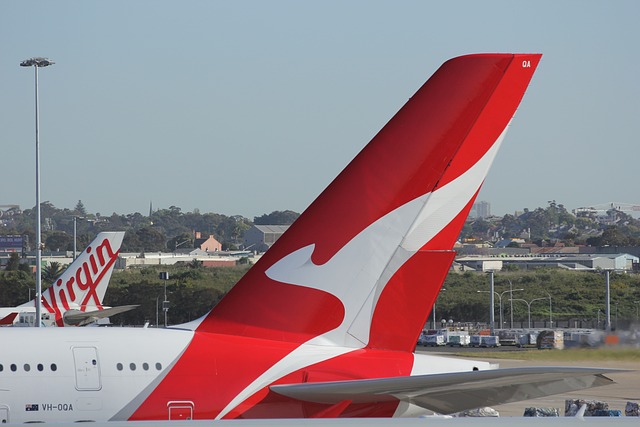As it moves from recovery to growth, the Qantas Group expects to create more than 8500 new high skill jobs in Australian aviation over the next decade.
These additional roles based around the country include pilots, engineers, cabin crew and airport staff, and are driven by investments in new aircraft and increased flying to meet long-term demand through Qantas, Jetstar, QantasLink and Qantas Freight.
The Qantas Group will hire more than 30,000 frontline people over the next 10 years, accounting for regular attrition as well as growth. In total, the Group will have an estimated 32,000 people by 2033 compared with around 23,500 currently.
“Aviation is so important to a country like Australia and you need a big skills pipeline to power it,” says Qantas Group CEO Alan Joyce.
“That’s not just about the major airlines but also small regional operators, defence and general aviation. It’s a whole ecosystem that pilots and engineers, in particular, make their way through, and the long-term skills base required means it relies on constant renewal.
“Qantas is already the single biggest investor in aviation skills in Australia, especially when you consider the constant training of our pilots, engineers and cabin crew just to maintain the status quo.
“From a growth perspective, we opened our pilot academy three years ago and today we’re announcing plans for an engineering academy, which will produce up to 300 trained people a year that will meet Qantas’ needs as well as Australia’s broader aviation ecosystem.”
As it emerged from the pandemic, the Group updated its fleet plan with orders and purchase rights for up 299 narrowbody and 12 widebody aircraft for delivery over the next decade. The capabilities of these next-generation aircraft will reshape the Group and its network.
Qantas recently announced up to 22 mid-life and wetleased aircraft to arrive in the next two years to help meet growth from multiple sectors, including leisure travel, freight and the resources industry.
Aviation jobs typically require specific skills, and so underpinning the recruitment drive is a massive commitment in training that will create a long-term pipeline of talent for the Qantas Group and Australian aviation more broadly.
“We order aircraft up to 10 years in advance, so we need to think similarly long-term about the people and skills we need to operate them,” says Alan.
“Over that period of time, we’ll create an estimated 8500 new aviation jobs in Australia, and most of those jobs require years of training.
“We look forward to working with the industry, training organisations, unions and governments to finalise details for the engineering academy.
“In the near term, we’re gearing up to meet the growth in all of the markets we serve. We have more aircraft arriving every month, and that means we need more pilots, engineers, cabin crew and others.
“Over the next 18 months, we expect to create more than 2000 new jobs plus replacing natural attrition, so if you’ve ever wanted to work in aviation or at the national carrier, now’s a great time to join.”
“Wherever you look there is a skills gap, and according to the OECD, Australia has the second highest labour supply shortage,” says Australian Minister for Skill and Training, Hon. Brendan O’Connor.
“This is a major economic challenge. But it is also an opportunity of a lifetime for people to get the right skills for jobs that are in demand.
“Australia needs thousands of new workers and engineers to enter the aviation industry to ensure secure jobs and a thriving sector and we welcome this investment by Qantas to help develop these future skills needs.
“The Albanese Government will continue to take a collaborative approach, working with industry to deliver the skills the country needs.”
The national carrier has also announced that it will establish the Qantas Group Engineering Academy in Australia, with capacity to train up to 300 engineers a year.
The Academy will provide aviation engineers for the Qantas Group as well as the broader aviation industry, including defence contractors and general aviation – two areas with high demand for these skills. A particular focus will be encouraging more women to consider a career as an aircraft engineer.
Over the next decade, the Qantas Group alone will need around 200 new engineering recruits every year to meet growth as well as attrition as current engineers retire. That number exceeds the current national supply of new aviation engineers each year, meaning a new training pipeline is needed.
Qantas will make a multi-million investment to establish the Engineering Academy, which is expected to open its doors to the first students in 2025. Entry-level classroom training for aviation engineering takes at least 12 months, with further on-the-job training required to move through various levels of accreditation. A fully licenced aviation engineer typically takes a minimum of five years of practical and classroom training.
Qantas will liaise with unions and industry to finalise how the academy will operate, including how it works in with existing apprenticeship programs run by Qantas and Jetstar. Similar to the Qantas Group Pilot Academy that opened in early 2020, Qantas expects to collaborate with registered training providers for the Engineering Academy.
A decision on location for the Academy will be made as part of the final design, expected to be determined by the end of 2023.



